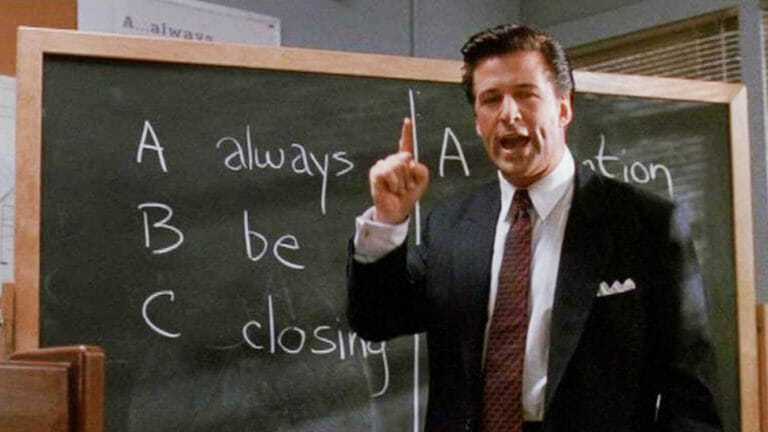By Monty Mickelson · October 2, 2016

David Mamet’s book Bambi vs. Godzilla: On the Nature, Purpose, and Practice of the Movie Business contains a wonderful litmus test for every aspiring screenwriter. Mamet, who has written or collaborated on more than 30 films (and directed a dozen of his own scripts), is also a Pulitzer Prize-winning playwright. So when he dispenses pithy nuggets of writing advice, we should all be predisposed to pay attention.
The litmus test comes in the form of his Three Magic Questions, which Mamet also jokingly calls “the Lost Secret of the Incas.” But Mamet cautions that no writer should ever, under any circumstance, put pen to paper of fingers to keyboard until he or she has answered them. There is a kind of elegance to their simplicity; so here are the questions:
1.) Who wants what from who?
2.) What are they willing to do to get it?
3.) Why now?
In Bambi vs. Godzilla Mamet writes: “As a writer, your instinct, your evil inclination will do everything in its vast power to dissuade you from asking these questions of your work…We resist because we presume to know better. We resist because we are lazy.”
Let’s examine the first one, “Who wants what from whom?” In heist stories, in revenge westerns and in pretty much any war picture ever made that question is self-evident. Even in a character-driven story like Young Adult (screenplay by Diablo Cody) the Who-wants-what? is pretty clear. Mavis has returned to her home town to re-seduce an old high school beau and (by implication) devastate his picture-postcard family. It’s a twisted objective, a dubious quest that casts Mavis as a shameless would-be homewrecker. In the case of Mavis (played by Charlize Theron), the answer to Mamet’s Question Two is a bit more obscure. What happens if Mavis doesn’t manage to captivate Buddy (Patrick Wilson)? What is the consequence for her?
I would revise the phrasing of Question Two to read: “What is he or she (your protagonist) will to do to achieve it?” (Although Dave really hates it when I try to rewrite him.) The answer to this question imposes stakes. It answers the secondary, implicit question, which is: How motivated/dedicated is this individual? How resilient will he/she become when presented with sundry obstacles? If you’re hewing to a classic, three-act screenplay structure, the What-are-they-willing-to-do? question will most likely get answered in the middle of the second act…what Blake Snyder has identified as the “mid-point complication”.
In Young Adult, Mavis’s mid-point reassessment comes when she realizes that Buddy is not nearly as nostalgic as she is; he’s not going to fall for her dubious charms and leave his family for a fling with a second-tier novelist.
As for the third question, Why Now? imposes that crucial element of urgency. Mamet is planting a flag here, a requirement that you select a point in the general narrative at which shit gets real, where the consequences are genuinely dire.
The Why now? trigger of Mavis is twofold: She received an invitation to christening of Buddy’s child at a time when she was financially tapped out; the revenue stream from her books was drying up. The notion that her downward spiral coincided with Buddy’s manifestation of a dream life was just too much to take. Mavis resolves to hit rewind, to recapture this vestige of her callow youth and with it, her self-esteem.
If you have completed a draft of a script that seems to meander a bit, if it sputters to a conclusion then you have not adequately answered Mamet’s Why now? question. You have not imposed urgency. The late Roger Ebert, in his reviews coined an acronym for this urgency element, calling it “the RDR”. RDR being short for “red digital readout”, often characterized as a reverse ticking clock in bomb-related film sequences (e.g., Goldfinger, Jason Statham’s Transporter series, Nonstop with Liam Neeson). Ebert’s point was that even films without bombs or action scenarios still need an element of RDR. And that only comes when you answer the Why now?